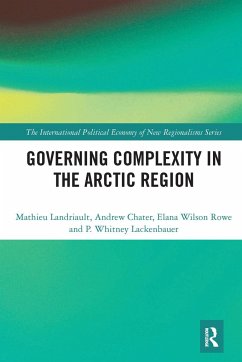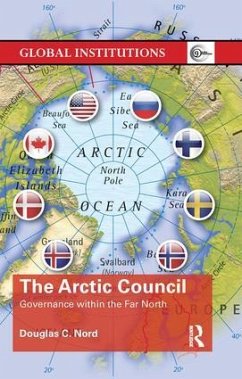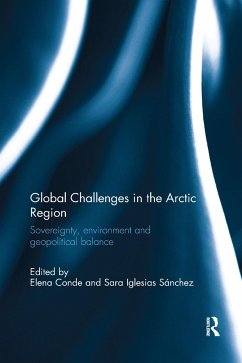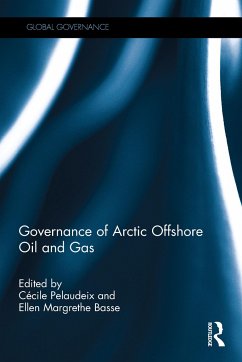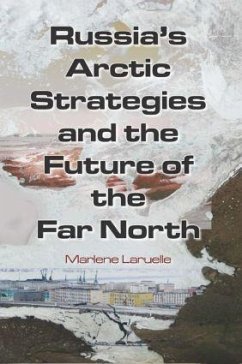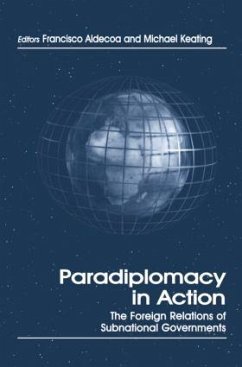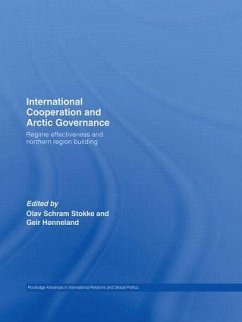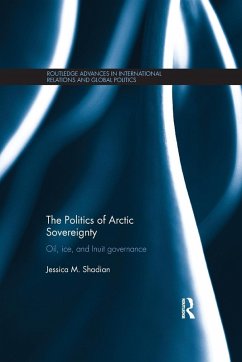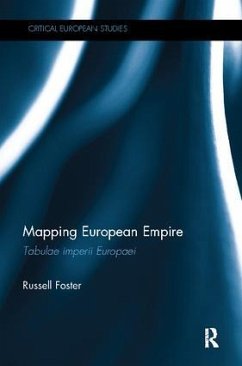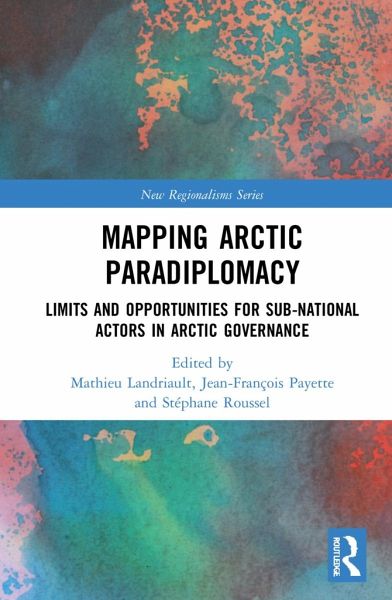
Mapping Arctic Paradiplomacy
Limits and Opportunities for Sub-National Actors in Arctic Governance
Herausgeber: Landriault, Mathieu; Roussel, Stéphane; Payette, Jean-François
Versandkostenfrei!
Versandfertig in 1-2 Wochen
53,99 €
inkl. MwSt.

PAYBACK Punkte
27 °P sammeln!
This book analyses the possibilities and limitations that sub-national actors face when developing diplomatic activities in the Arctic region. Sub-national actors, such as civil society groups and sub-national governments or administrations, have been active in international relations for decades. They face specific political and economic limitations on the international scene as non-sovereign entities. This book investigates how these actors have developed their international presence in the Arctic region. It analyzes the diplomatic activities of states, provinces, regional administrations, a...
This book analyses the possibilities and limitations that sub-national actors face when developing diplomatic activities in the Arctic region. Sub-national actors, such as civil society groups and sub-national governments or administrations, have been active in international relations for decades. They face specific political and economic limitations on the international scene as non-sovereign entities. This book investigates how these actors have developed their international presence in the Arctic region. It analyzes the diplomatic activities of states, provinces, regional administrations, and multilateral forums made of sub-national governments to offer comparative insights on the strategies, interests, and activities of sub-national governments. Alaska, Scotland, Quebec, Yakutsk, and Indigenous People's organizations are among the examples covered in this book that have forged bilateral and multilateral relations to promote and defend their interests and values. Moreover, sovereign states are often using these sub-national actors to further their own interests, as exemplified in this book in how Russia and China harnessed the potential of sub-national governments to align with their Arctic policies. The volume will be useful to academics and graduate students of Arctic politics, international relations, comparative politics, comparative federalism, foreign policy, and global governance.





